Know that this article was inspired by recent and very real events. A few weeks ago I received an edited manuscript from a very patient editor, almost three-hundred pages absolutely covered in red-slashed edits. Flipping through it was like fast-forwarding through a B-grade slasher film. A few days later, I got a review back from a female beta-reader who said that the mother in the story wasn’t landing properly and that a risk I took near the end, a scene that was meant to be the narrative climax of the second book, bored her. Double ouch. So let’s get real about what the editing process is like and how to survive it. "...almost three-hundred pages absolutely covered in red-slashed edits.
Principle 1: Force equals mass times acceleration.Application to Bar Fights: Big people (i.e. big mass) don’t have to move very fast (i.e. low acceleration) to throw forceful punches. Small people (i.e. small mass) need to strike extra fast (i.e. high acceleration) to hit with the same kind of force.
By the way, this rule also explains why sugar-coated feedback (i.e. low acceleration) is not helpful. It doesn’t matter if you are dealing with a big mass or a small mass; if it’s moving really slowly it isn’t going to hit with noticeable any force. "...get strangers or friends-of-friends (i.e. small mass) to review it in order to lessen the force when those criticisms hit." Principle 2: Force can also be viewed as change in momentum over time.Application to Bar Fights: Bones don’t break because they are moving really fast. Bones don’t break because they stop moving. Bones break because they go from moving really fast to a complete stop really quickly. It’s the difference between being shoved up against a wall and being thrown into it.
Principle 3: Intensity of impact is proportional to an object’s rigidity.
"This principle is also the reason you can go diving into a pool of water but not into a pit of gravel." Application to the Editing Process: The more nervous you are about others critiquing your work (i.e. rigidity) the harder their criticism is going to hit you. This is unfortunate because that means your own fear of criticism is proportional to how much it is going to hurt when it inevitably comes crashing into you. So don’t tense up. Pretend you are someone else looking at your work. Even better, treat the work as if it was someone else’s story or poem. The more you can relax into the idea that your story is going to take a few hits, the more efficiently you can spread the impact of that criticism around. "Pretend you are someone else looking at your work.
1 Comment
Interesting first question for me, because I actually sort of hate sandwiches. Writing beverages!! I could partake in any type of writing beverage and instantly be put in the typing mood. Coffee, hot chocolate, frappuccino, smoothie, apple cider, they are all on the same level of preference. This is a tough quick-fire question! It’s hard for me to call any one character absolutely despicable, because there’s always something under that layer of not-niceness. I find villains are typically the most complex characters in a cast. There are so many layers to their backstory that made them into the monster they are. If you take a moment to step in their shoes, see the world through their lens, you may understand how they justify their actions. It doesn’t excuse them, but it does create sympathy, and how can you despise someone you pity? But if I had to choose one, I would pick Maven from the Red Queen series. I don’t want to be 'spoilery', but he did some really messed up things to people he had claimed to love and it made me really upset. I will say though, he has that complex backstory that makes you sympathize with him and some readers actually like him and ship him with the main character - he did not win me over that much. I find villains are typically the most complex characters in a cast. There are so many layers to their backstory that made them into the monster they are. What does a productive day of writing look like for you? Are you at home or out in public? Do you typically write thousands of words at a time or just a few hundred each session? Do you write on a schedule or are you flexible? My writing schedule is controlled chaos. Working a full-time job and managing other adult life things makes it hard to designate specific time to writing. What I do is more of a general weekly writing goal of 5,000 words a week. I write during my lunch break, waiting for my oil change at the repair shop, waiting in a long line at the bank, when I have a free evening at home - you get the idea. Sometimes I don’t make that goal because life happens, but I don’t beat myself up for it, I just partition the extra words between the following two weeks to make it up. Right now I’m not following that schedule though as I’m focusing on short stories, so my writing time/amount of words on the page is even more sporadic than it was when I was writing Creatures Most Vile.
Little did I know I would soon fall in love with writing. One thing I have been my whole life is a lover of books, I don’t know why it didn’t occur to me until I was 21 that I might actually love writing books, too. So now that I’ve caught the bug, I find I have lots of stories to tell. Stories about girls who find themselves misunderstood and ridiculed by society, girls who fight for their right to live their lives the way they choose, free of retribution. You are in the process of querying agents and publishers. How have you found that process and do you have any tips for writers who may be getting close to finishing their current manuscript? Querying is one of the most difficult things I’ve done to myself. I am willingly putting a piece of myself out into the world for strangers to judge and, in my case, reject. That is one of the hardest things to cope with during the querying process- people constantly rejecting something you love with all your heart and poured endless amounts of work into. So my biggest tip for writers about to start querying is prepare your heart. Be ready for rejection and have some coping strategies to get through it. Most importantly, always keep in mind that rejection is NOT a measure of your talent or self. You’re work is amazing and you are amazing for putting yourself out there and taking this big step towards sharing your creation with the world. Don’t let the rejections define you or discourage you, no matter how many stack up. My coping strategy is to turn that rejection into fuel to move forward. I have a rejection goals checklist, for every rejection I put a sticker on the board. My current goal is to reach 30 rejections by the end of the year. Those stickers show that I’m not giving up on my dream by turning my rejections into milestones, rather than failures. Don’t let the rejections define you or discourage you, no matter how many stack up. Your first novel, Creatures Most Vile, is a YA fantasy rife with terrifying monsters that stalk a young woman named Anora who is navigating the difficulties of trauma and struggling to support her family. Where did you find inspiration for this harrowing tale?
The initial inspiration came from a dream... When I woke up, I wrote the dream down and used that as my base for the story. The suspenseful scary setting and monster inspirations come from my lifelong interest in all things horror. I'm a big fan of monster movies especially, because I love seeing imaginative takes on biology. Writing my creatures was my favorite part because I got to be the creator and brought my own imagined organisms to life on the page. Writing my creatures was my favorite part because I got to be the creator and brought my own imagined organisms to life on the page. Issues surrounding mental health have been given increasing attention in recent public discourse. Through Anora’s story are you trying to address any particular mental health concern or spark a conversation on a particular issue related to that topic? Yes! The main theme and conversation I want to address is the downplay of mental health in society. Anora suffers from PTSD and anxiety from growing up in a world constantly under threat of attack from voracious monsters. She has witnessed countless massacres, including her father’s death, and has nearly met her own grisly demise more times than she cares to count. When her storm-wielding powers are discovered and she’s expected to fight these beasts, her mental health is completely disregarded by society. They write it off as a simple fear she’ll get over with time and throw her right into the thick of training without a second thought. When her storm-wielding powers are discovered and she’s expected to fight these beasts, her mental health is completely disregarded by society. This is a problem that many people with any form of mental illness face. I suffer from anxiety and had situational depression in the past. I’ve heard comments like “You’re overreacting/ being dramatic”, “Just calm down”, or “Get over it” more times than I should. Downplaying and disregarding any form of mental illness needs to stop. Mental health is just as important as any other health measure, and should be a priority concern with how people treat others, regardless of the kind of monster that person is facing. Mental health is just as important as any other health measure, and should be a priority concern with how people treat others, regardless of the kind of monster that person is facing. In speaking with other fantasy writers I find that one of the most common difficulties in building a fantastic world is handling and defining the role and use of magic. How does magic work within Anora’s world and how did you define its boundaries and limitations? Magic is very rare in Anora’s world. The only manifestation of magic is through rare, supernatural abilities. I’ve drawn a lot from my biology background to define the terms of this magic. It is something you’re born with, a specific gene mutation occurring in a small portion of the population that allows the person to manipulate specific aspects of the environment. In Anora’s case, she can manipulate specific elements: water and air. She can manipulate them individually or in tandem to create weather. Others are born with a manipulation of earth or energy, while others can manipulate more organic materials like muscles, nerves, and brain matter (IE mind control). With the biological element to how these powers work, there is a finite well to their power that limits them from being super crazy powerful beings. The explanation behind how it works is super science-y and I won’t describe here (I don’t go into full detail in the book either, it’s mainly to satisfy my nerdiness). There are no magical objects, but there is some imaginative tech developed to help people survive in this creature ridden world. I’ve drawn a lot from my biology background to define the terms of this magic. It is something you’re born with, a specific gene mutation occurring in a small portion of the population... Where can readers keep track of Creatures Most Vile on its march towards publication and where stay fans stay up to date on your most current projects? Creatures Most Vile and I have a long journey ahead of us and I post updates on Facebook, Twitter, and my website. Thank you for your support and hope one day you’ll find Creatures Most Vile sitting on your shelf!
The advice I gave in Part I of Becoming a Resilient Writer went down pretty easy, maybe not ‘strawberry milkshake’ easy but certainly ‘spinach smoothie’ easy. Part II is full of suggestions that most will find about as palatable as shooting apple-cider vinegar straight. However, as a beneficiary of honest writing advice myself I feel compelled to pass these lessons on. "Clearly the message of resilience resonated with the wider writing community. " The first lesson on the second stage of my writing journey is this: view rejection as a personal victory. I am not kidding when I tell you that I literally jumped out of my chair and did a double fist-pump in the air when the notification of my first rejection popped up on my phone. I was elated. Why? Because I was rejected by a big publisher. That means they had considered it. For three seconds, three pages, or thirty minutes, it didn’t matter. And believe me when I say it was not the last rejection I received. If I had let those rejections knock me down a notch I’d be far enough underground to hit the water table by now. Whatever I felt, whether it was excitement, frustration, or fear, I threw into the tank as fuel to send out another query, to reach out to another author, or to push through another edit of my manuscript. So don’t let rejection burn you down; use it as rocket fuel instead and eventually you will achieve lift-off. "So don’t let rejection burn you down; use it as rocket fuel instead and eventually you will achieve lift-off. "
"That twenty five minutes which should have been spent crafting the final climactic scene will be squandered scrolling through the responses (or a depressing lack thereof) on your feed. Instances become patterns. Patterns become habits." The third piece of advice I have for writers who aspire to publish their work is this: start networking early and pay it forward whenever you can. There is an incredibly diverse and active community of writers, published and unpublished, who are working their fingers into nubby little stumps trying to get their next book finished and released. Recognize that the rush you get from someone sharing a post about your novel or commenting on an interview you were in is something of value that you can pass on to other people. Here’s the best part: it only costs you a bit of time and energy. And while some might say that time spent connecting with and encouraging other authors should be spent writing, your future publisher might disagree. After all, writing a book is only the beginning; your future publisher is part of the publishing industry and that means selling books. The professional support network you build will be instrumental in getting your book into the hands of fans all over the world. So do unto others as you’d hope they would do to you: send encouraging notes, cheer on their successes, and invest in your own community of author friends, publishing contacts, and future fans. "And while some might say that time spent connecting with and encouraging other authors should be spent writing, As I said in Becoming a Resilient Writer (Part I), not everything that works for me will work for you. But the creative potential within you will not be fully realized if you don’t have the resiliency to see your projects through. Stand firm, forge ahead, and write the story you were born to tell. For more on writing and resiliency Joshua suggests reading Steven Pressfield’s The War of Art.
My first lesson was this: inspiration feels more like rowing and less like the weather. I used to sit around in my writing chair as if it was a sailboat. There I would wait for inspiration to fill my sails and whisk me away on the adventure that was my story. Gusts of inspiration came intermittently but with such infrequency that they carried me nowhere; even worse, they often blew me right back to where I started. But when I learned to row, to start tugging at those oars despite the blisters and the rain, I started to make real progress. Then when a blessed gust of inspiration did come I was ready to take full advantage of it. The second lesson I learned is going to sound strange, but I’ll share it anyways because this is what really changed the game for me: imagine there is a force that is actively and insidiously working against you finishing your book. You don’t have to literally believe this (I do) but it will put you in the right mindset. The creative process, like actual birth, isn’t a pretty, passive act. You won’t want to Instagram the reality of it. It’s a gritty, greasy slog that will take everything you’ve got, and then some. So forget all the perfect pictures of laptops and lattes that other people post online and brace yourself for all-out war. "The creative process, like actual birth, isn’t a pretty, passive act. You won’t want to Instagram the reality of it." My last piece of advice is for writers in the digital age: treat social media like sugar. It feels great to have your Facebook page liked, your Twitter announcement re-posted, or your podcast shared. However, nothing is going to crush you like a bad review or a rejected query letter if you’re relying on praise from strangers; it’s like trying to run a marathon on a stomach full of halloween candy. Instead, ground yourself in your work, believe in its intrinsic value, and invest in a support network of analog friends (preferably writers) rather than banking all your hopes on one-shot viral success online. Not everything that works for me will work for you. But I do think your story is worth telling and I don’t think you will finish it in a reasonable amount of time without becoming a resilient writer. So ignore the storm clouds on the horizon. Nevermind that the breeze is blowing against you. Chalk up those hands then grip the oars and get writing. For more on writers and resiliency Joshua recommends The War of Art by Steven Pressfield.
Suggested Article: Becoming A Resilient Writer (Part II) |
AuthorJoshua Gillingham is an author, editor, and game designer from Vancouver Island, Canada. Archives
April 2022
Categories
All
|


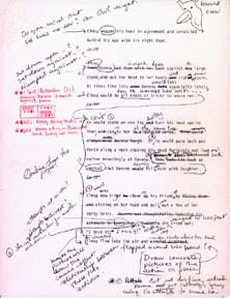
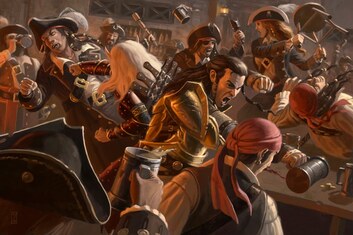
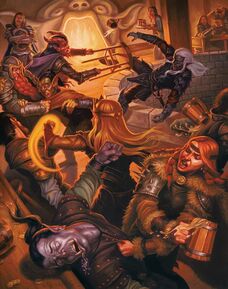
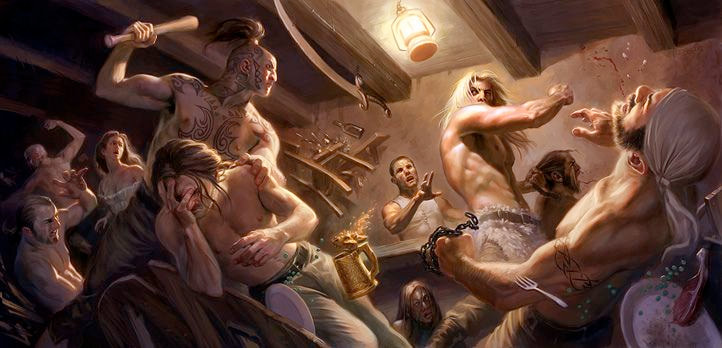
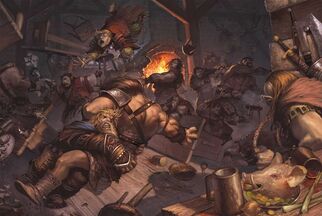
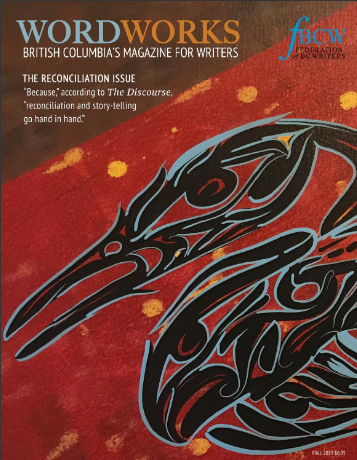


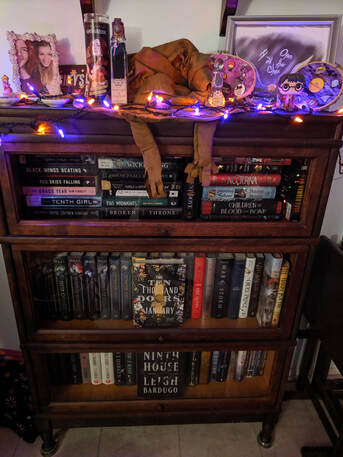


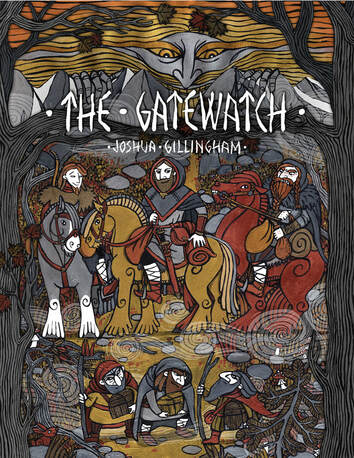

 RSS Feed
RSS Feed
